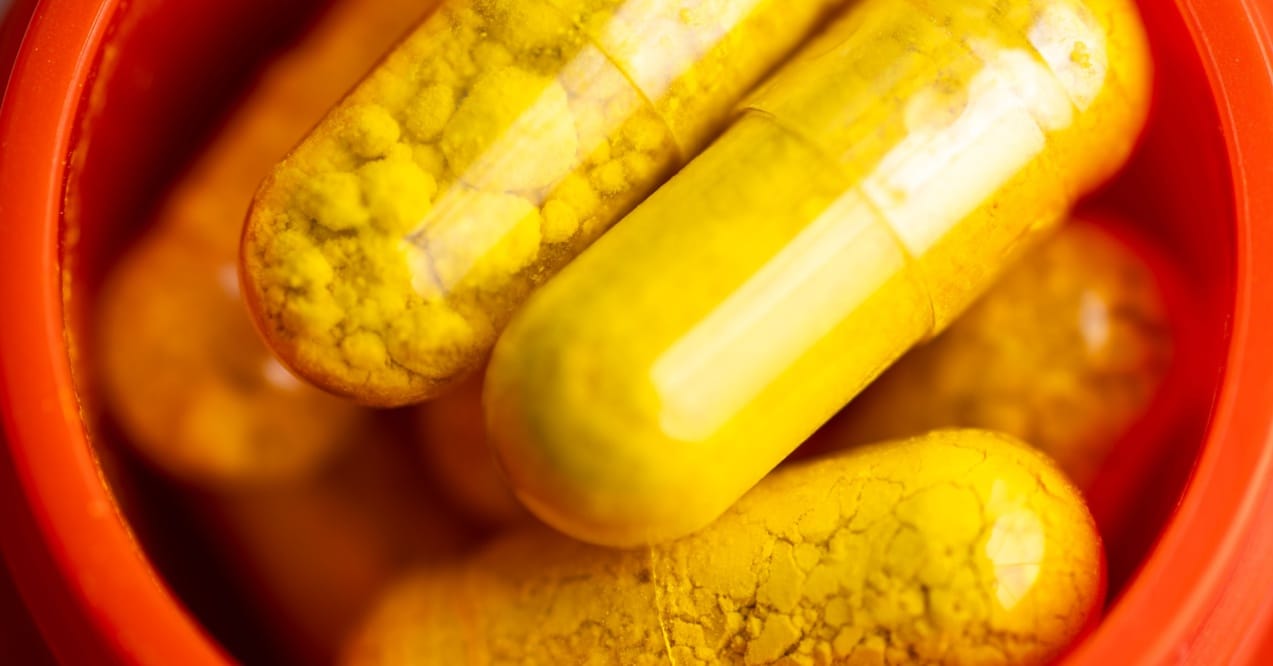Is Berberine Bad For Kidneys? Things You Need To Know
Medically reviewed by our experts


Berberine is everywhere right now, which makes the question is berberine bad for kidneys important. Studies suggest mixed findings, with encouraging signals and real caveats. This guide keeps things simple so you can weigh potential upsides against risks.

What Is Berberine?
Berberine is a natural compound found in plants such as Berberis vulgaris. It has a long history in Chinese and Ayurvedic practices. Today it is popular for metabolism support and gut health.
You will see berberine in capsules, powders, and blends. Quality varies by brand and dose form. For a plain overview of potential upsides, see our quick guide on berberine benefits.
Typical labels list plant source and amount per serving. Look for third-party testing and a clear supplement facts panel. Simple, transparent formulas are easier to assess.
How Berberine Works in the Body
This section ties basic science to everyday choices. The focus is on what may matter most when using a supplement.
| Topic | What studies suggest | Why it matters |
| AMPK activation | May switch cells toward better energy use | Could support steady energy through the day |
| Oxidative stress | May reduce harmful byproducts in cells | Could help maintain cell integrity |
| Inflammation | May calm certain inflammatory signals | Might support overall comfort and recovery |
Effects depend on dose, timing, and product quality. Responses differ from person to person. Short trials cannot predict long-term outcomes.
Is Berberine Bad For Kidneys – What Research Says
Here is the short answer first – current evidence does not show broad harm to healthy kidneys, but careful use still matters. Signals of benefit appear in some models, yet human data are limited. That is why practical safeguards help.
What looks promising
Small human studies and lab models suggest berberine may support markers tied to kidney function. Possible pathways include AMPK activity and lower oxidative stress. These signals point to a potential protective effect in specific contexts, not a guarantee for everyone.
What is unclear
Study sizes are often small and run for short periods. Different products and doses make results hard to compare. Long-term safety for diverse groups is still not well mapped.
When Berberine Might Be a Concern for Kidneys
Here is where extra care makes sense. Use these points to decide whether to pause or seek personalized guidance.
- Existing kidney impairment or reduced filtration may change how the body handles supplements
- High total daily doses and prolonged use increase unknowns
- Certain prescriptions and herbs may interact and add stress to how the body clears compounds
If you have symptoms tied to fluid balance or unusual fatigue, take a break and reassess. Track how you feel and how often you take it. Ask a licensed professional to review your full supplement list if in doubt.
Possible Side Effects of Berberine
Most people tolerate berberine in moderate doses, but side effects can happen. Digestive changes such as gas, stomach upset, or loose stools are the most common. These often appear in the first weeks of use.
Some people notice slower bowel movements or mild headaches. Taking berberine with meals may reduce these issues. Avoiding very high single doses also makes reactions less likely.
Rare effects may include low energy or a change in taste. These tend to improve when the supplement is reduced or stopped. Because individual responses vary, it is helpful to track daily intake.
Does Berberine Have Kidney Benefits
Research hints at possible indirect support for kidney health. By affecting blood sugar and cholesterol, berberine might reduce strain on the kidneys. These effects remain potential, not proven outcomes.
In some models, berberine lowered proteins linked to kidney stress. Animal work shows changes in filtration markers that look protective. Human data are fewer and shorter, so any benefits remain tentative.
You can read more about these broader effects in our berberine benefits guide. It explains how metabolism and kidney function may overlap. This connection shows why people are curious about long-term use.
Safe Dosage and Duration of Use
Here is what is commonly reported in research trials. Typical daily doses range from 500 mg to 1,500 mg, often split into two or three servings. Taking it with food may improve comfort and absorption.
Short studies often run for 8 to 12 weeks. Beyond that, less is known about safety. Pausing after a cycle and checking in on overall health may be wise.
More is not always better. Very high intakes increase the chance of stomach upset and unknown long-term impact. Staying within studied ranges helps limit risks.
Who Should Avoid Berberine
Not everyone is a good fit for this supplement. Some groups may need to avoid it entirely. Others may only use it with close oversight.
- People on dialysis or with serious kidney impairment
- Those taking medications that rely on liver or kidney clearance
- Pregnant or breastfeeding women due to a lack of safety data
- Children, since most research is in adults only
In these cases, is berberine bad for kidneys becomes a more direct concern. When in doubt, avoid starting until you get personalized input. This is especially important if you are juggling several prescriptions.
How To Choose a Quality Berberine Supplement
Not all supplements meet the same standards. Poor-quality products may include fillers, wrong dosages, or contaminants. A careful shopper can reduce these risks with a few simple checks.
- Look for third-party testing seals such as USP, NSF, or ConsumerLab
- Read the supplement facts panel for clear dosage and plant source
- Avoid blends that hide exact amounts of berberine
- Check for batch numbers and expiration dates on the label
Companies that provide certificates of analysis show added transparency. Smaller details like clear contact information and return policies also matter. Choosing a trusted source supports safer long-term use.
Support for Blood Sugar Balance
Since many people look at berberine for its role in metabolism, it often gets paired with other nutrients for steady blood sugar. A well-rounded approach may combine lifestyle changes with supportive supplements. If you are exploring options, see our full blood sugar support collection for carefully selected products that match this goal.
How to Talk With a Clinician About Berberine
Conversations about supplements can feel awkward, but they do not have to be. A simple approach works best. Here are steps to bring up berberine at your next appointment.
- Write down the brand, dosage, and how long you have been taking it
- Note any side effects or changes in digestion, energy, or sleep
- Ask if any of your current medications may interact with it
Keeping questions direct helps your clinician give useful feedback. For kidney concerns, you might also ask whether basic blood tests are appropriate. This creates a clear record without assuming a problem.
Lab Values You Might Track
Routine lab work can provide context if you are using berberine. While not everyone needs tests, they may be worth discussing. Some markers tie directly to kidney function.
| Marker | What it shows | Why it matters |
| eGFR | Filtration rate | General measure of kidney health |
| Creatinine | Waste buildup | Higher numbers may suggest stress |
| Electrolytes | Balance of minerals | Shifts may reflect kidney load |
These tests are standard in many health checkups. Asking about them does not require special procedures. If levels change, it may be time to review supplement use.
Current research does not show direct harm in healthy people. Caution is still advised with existing kidney issues. Monitoring and moderation help reduce risks.
Some studies suggest possible protective effects. Most data are from short trials or animal models. Human results remain early and uncertain.
Yes, taking it with meals may ease digestion. This approach may also improve absorption. It helps reduce stomach upset in sensitive people.
Pan, L., Et Al. (2022). Berberine ameliorates chronic kidney disease through inhibiting the production of gut-derived uremic toxins in the gut microbiota. Acta Pharmaceutica Sinica B, 13(4), 1537–1553.
BERBERINE: Overview, uses, side effects, precautions, interactions, dosing and reviews. (n.d.).
Clinic, C. (2025). Is Berberine bad for Kidneys? Cleveland Clinic.
Berry, J. (2025). Everything to know about berberine.
Hassanein, E. H., Et Al. (2022). Protective effects of berberine on various kidney diseases: Emphasis on the promising effects and the underlined molecular mechanisms. Life Sciences, 306, 120697.
Popular Articles
Advertisement. This site offers health, wellness, fitness and nutritional information and is designed for educational purposes only. You should not rely on this information as a substitute for, nor does it replace, professional medical advice, diagnosis, or treatment. If you have any concerns or questions about your health, you should always consult with a physician or other health-care professional. Do not disregard, avoid or delay obtaining medical or health related advice from your health-care professional because of something you may have read on this site. The use of any information provided on this site is solely at your own risk.













